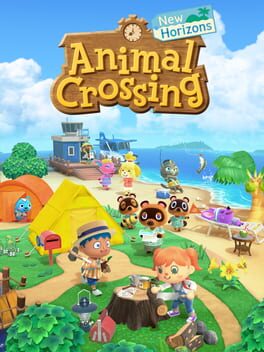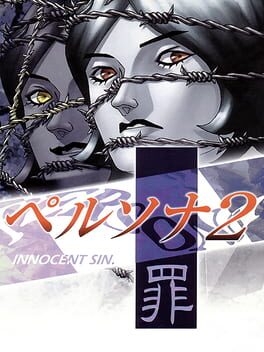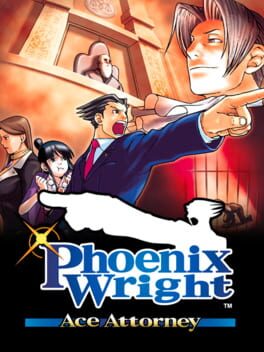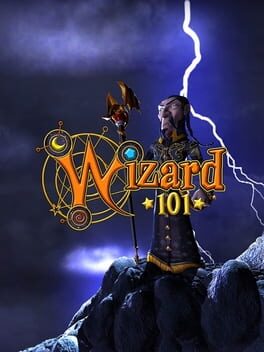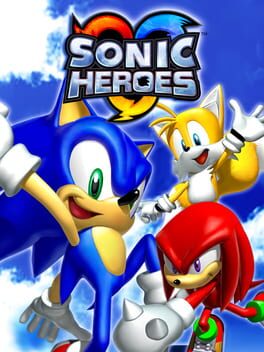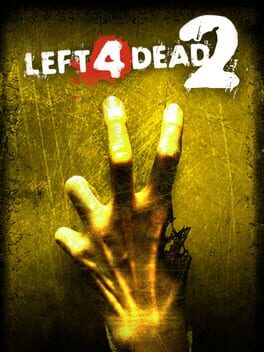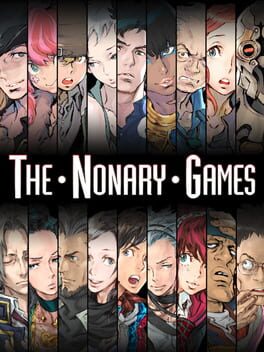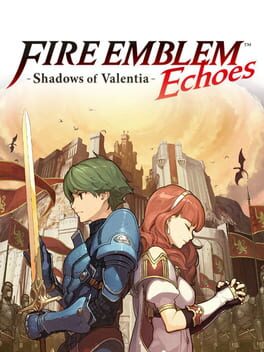conflict
82 Reviews liked by conflict
This review contains spoilers
didnt play this recently or anything just been thinking about it a little bit. this had so much potential, the slow development sayuri gets for the first 2 hours or so and the actual hanging are so well done and genuinely sad and disturbing. after that it just devolves into the lamest creepypasta bullshit. spooky eyes, bleeding from the eyes, a lot of eye stuff, really. ooooohhhh the game's glitching! ooooooohhhhhh..... scarrryyyy.......
just kind of unfortunate
just kind of unfortunate
Omori
2020
Seems like a fairly common occurrence these days where the next big, exciting indie game is yet another Earthbound inspired exploration into deceptively dark territory. While on paper, this could be demonstrating a detrimental trend into following a formula without so much as a second thought, I'm currently all for this pattern simply due to the incredible quality these games tend to showcase, along with the variation in the presentation and themes explored throughout. This finally brings me to talking about Omori, which in typical fashion continues both aspects of this trend, wearing many of its influences on its sleeve, yet being profoundly interesting and unique at the same time. Not only is Earthbound core to this game's identity, Omori feels like the natural end point of many classic RPGMaker horror titles, namely Yume Nikki, which brings in a refreshing sense of surreal darkness to further make this all stand out.
As alluded to previously, influences on their own are not what make a game interesting, it's how everything comes together to elevate each individual component and reinforce the distinct identity of the project. In this sense, the aspect of Omori that easily makes it stand out the most is its overall presentation. The artstyle alone in this game is frankly amazing enough to sell this game to a lot of people on its own, as is evident by the insane backing this got from stuff like the trailer alone. The childish sketchbook aesthetic that makes of bright colours, switching between the vaguely messy pencil scribbles and what almost looks like someone started using crayons for colouring both manages to provide a consistently whimsical look while being able to tie in thematically as well. While much of the game takes on a more traditional 16 bit style, even these parts still feel remarkably cohesive with everything else. This is thanks to the unique quirks of this pixel art, whether it's the cloyingly bright palette of the dream world or the minor imperfections in the art itself mimicking that of the more artistically distinctive sections, culminating in the two contrasting styles melding together in a surprisingly clean way.
The gameplay is relatively simple, yet effective, with the combat mechanics relating to emotions and follow up attacks giving each fight a sense of dynamicity, especially in the way the game does not promote a singular dominant strategy. This is further elevated by the varied and interesting moveset each party member gets, and the limitation of only having 4 special move slots. The combination of these two interlocked systems provides great depth to both the player's strategy and tactics, allowing them to approach an encounter with a solid plan in mind, but also with the tools necessary to adapt on the fly. This deceptively complex, multifaceted combat is only further elevated by the relatively manageable difficulty , which is conducive to the experimental approach that the game intends to lead the player down. This is thanks to the way this lowered difficulty allows less efficient solutions to still work, after all, not everyone's novel, creative ideas are necessarily objectively the correct way to approach a situation, but it's all about the fun of it that makes it so appealing.
The boss fights are the truest testament to this careful approach towards encounter desigtn that Omori undertakes. While the sweeping, high damage moves these fights dish out are obviously threatening, the more dangerous feeling aspects of these often come from the way they will mess with your plans in a lot of cases, and remove certain potential options. This often forces the player to need to use those tactical mechanics to their fullest, often with a choice between having their plat get put back on track, or using the circumstances the boss has put you under as an opportunity to creatively pivot into another approach. Due to the way these boss fights end up being able to to fully show off the extent of these systems and the way they contribute to player agency, these end up often becoming some of the purest highlights Omori has to offer.
While Omori certainly markets itself as a dark game with aspects of psychological horror, it was very interesting to me how the scariest aspects of the game lie in the more abstract, subtextual material rather than the confronting depictions of mental illness or the spooky evil beasts. Rather than all this, the themes of the game that really hit the hardest in every respect are those pertaining to growing up and the relentless passage of time. The sense of emptiness, regret and desire all felt from coming to terms with the drastic ways things change, and how no matter what happens, time will continue marching on, whether or not you feel ready feels profoundly conveyed to the point where it's basically begging for the player to get all introspective and weird. That's not to say that the rest of the writing feels comparatively subpar either however, whether it's the character writing having the knack of endearing you to practically all of them, or the way aspects of grief and self doubt form such a pivotal and powerful role in the way the narrative is conveyed, this game has some seriously great writing. Similarly, the surrealism used in some darker moments near the end add to some seriously uncomfortable, uncanny imagery to the point where a looming sense of dread overtakes you whenever anything at all happens, demonstrating an effective grasp on how to craft an immersive atmosphere.
While all of these aspects I've mentioned are individually impressive, the true thing that makes Omori an utter masterpiece in my eyes is the meticulous way each seemingly disparate element contributes to the game's narrative and themes. Practically everything in this game has some deeper meaning to it, and I do mean practically everything. Ever feel like bits of the dream world feel strangely aimless? There's a reason. Characters suddenly acting totally different out of nowhere? There's a reason. Anything that feels strangely childish, silly, or a bit useless? There's a reason for that too. What about those sudden interspersed moments of cryptic language or horror elements? You get the picture. It's not just a case of weird bits having meaning either, it's also the way that even minor details are made to give the player further understanding of the world that's created here. The effects and little animations of follow up attacks serve to characterise the main cast further, the surreal, nightmarish sections can be interpreted as the representation of various deep fears that the protagonist has, even the subtle difference in the art style between the dream world and real world has massive implications. As a final point, even the twist, a twist which I think is really stupid, mind you, not only still manages to perfectly work thematically, but it manages to recontextualise the entire game in such a transformative way that a second playthrough of it has so many moments that end up feeling tremendously different and often heartbreaking.
Even with all this said, I still feel as if I've barely scratched the surface about what makes this game so amazing. This is simply so fantastic that I didn't even manage to find an effective place to mention the game's killer soundtrack or some particularly clever design decisions, such as giving the the player access to a late game area early on for some easy grinding to speed up the 2nd playthrough to tackle the alternate route. This game is just so full of genius ideas and a sense of wonder that I can't help but adore it. I wouldn't consider this perfect by any means, as there are some big quality of life elements it's missing, especially for cutting the tedium of that second playthrough to experience all the content it has for offer, and my aforementioned issues with the twist. Despite this, I still consider this to be a personal favourite game of mine. I can't recommend this game enough, it made me feel so many things, and I have confidence that most people who play it will feel the same way once they play this touching work of art.
As alluded to previously, influences on their own are not what make a game interesting, it's how everything comes together to elevate each individual component and reinforce the distinct identity of the project. In this sense, the aspect of Omori that easily makes it stand out the most is its overall presentation. The artstyle alone in this game is frankly amazing enough to sell this game to a lot of people on its own, as is evident by the insane backing this got from stuff like the trailer alone. The childish sketchbook aesthetic that makes of bright colours, switching between the vaguely messy pencil scribbles and what almost looks like someone started using crayons for colouring both manages to provide a consistently whimsical look while being able to tie in thematically as well. While much of the game takes on a more traditional 16 bit style, even these parts still feel remarkably cohesive with everything else. This is thanks to the unique quirks of this pixel art, whether it's the cloyingly bright palette of the dream world or the minor imperfections in the art itself mimicking that of the more artistically distinctive sections, culminating in the two contrasting styles melding together in a surprisingly clean way.
The gameplay is relatively simple, yet effective, with the combat mechanics relating to emotions and follow up attacks giving each fight a sense of dynamicity, especially in the way the game does not promote a singular dominant strategy. This is further elevated by the varied and interesting moveset each party member gets, and the limitation of only having 4 special move slots. The combination of these two interlocked systems provides great depth to both the player's strategy and tactics, allowing them to approach an encounter with a solid plan in mind, but also with the tools necessary to adapt on the fly. This deceptively complex, multifaceted combat is only further elevated by the relatively manageable difficulty , which is conducive to the experimental approach that the game intends to lead the player down. This is thanks to the way this lowered difficulty allows less efficient solutions to still work, after all, not everyone's novel, creative ideas are necessarily objectively the correct way to approach a situation, but it's all about the fun of it that makes it so appealing.
The boss fights are the truest testament to this careful approach towards encounter desigtn that Omori undertakes. While the sweeping, high damage moves these fights dish out are obviously threatening, the more dangerous feeling aspects of these often come from the way they will mess with your plans in a lot of cases, and remove certain potential options. This often forces the player to need to use those tactical mechanics to their fullest, often with a choice between having their plat get put back on track, or using the circumstances the boss has put you under as an opportunity to creatively pivot into another approach. Due to the way these boss fights end up being able to to fully show off the extent of these systems and the way they contribute to player agency, these end up often becoming some of the purest highlights Omori has to offer.
While Omori certainly markets itself as a dark game with aspects of psychological horror, it was very interesting to me how the scariest aspects of the game lie in the more abstract, subtextual material rather than the confronting depictions of mental illness or the spooky evil beasts. Rather than all this, the themes of the game that really hit the hardest in every respect are those pertaining to growing up and the relentless passage of time. The sense of emptiness, regret and desire all felt from coming to terms with the drastic ways things change, and how no matter what happens, time will continue marching on, whether or not you feel ready feels profoundly conveyed to the point where it's basically begging for the player to get all introspective and weird. That's not to say that the rest of the writing feels comparatively subpar either however, whether it's the character writing having the knack of endearing you to practically all of them, or the way aspects of grief and self doubt form such a pivotal and powerful role in the way the narrative is conveyed, this game has some seriously great writing. Similarly, the surrealism used in some darker moments near the end add to some seriously uncomfortable, uncanny imagery to the point where a looming sense of dread overtakes you whenever anything at all happens, demonstrating an effective grasp on how to craft an immersive atmosphere.
While all of these aspects I've mentioned are individually impressive, the true thing that makes Omori an utter masterpiece in my eyes is the meticulous way each seemingly disparate element contributes to the game's narrative and themes. Practically everything in this game has some deeper meaning to it, and I do mean practically everything. Ever feel like bits of the dream world feel strangely aimless? There's a reason. Characters suddenly acting totally different out of nowhere? There's a reason. Anything that feels strangely childish, silly, or a bit useless? There's a reason for that too. What about those sudden interspersed moments of cryptic language or horror elements? You get the picture. It's not just a case of weird bits having meaning either, it's also the way that even minor details are made to give the player further understanding of the world that's created here. The effects and little animations of follow up attacks serve to characterise the main cast further, the surreal, nightmarish sections can be interpreted as the representation of various deep fears that the protagonist has, even the subtle difference in the art style between the dream world and real world has massive implications. As a final point, even the twist, a twist which I think is really stupid, mind you, not only still manages to perfectly work thematically, but it manages to recontextualise the entire game in such a transformative way that a second playthrough of it has so many moments that end up feeling tremendously different and often heartbreaking.
Even with all this said, I still feel as if I've barely scratched the surface about what makes this game so amazing. This is simply so fantastic that I didn't even manage to find an effective place to mention the game's killer soundtrack or some particularly clever design decisions, such as giving the the player access to a late game area early on for some easy grinding to speed up the 2nd playthrough to tackle the alternate route. This game is just so full of genius ideas and a sense of wonder that I can't help but adore it. I wouldn't consider this perfect by any means, as there are some big quality of life elements it's missing, especially for cutting the tedium of that second playthrough to experience all the content it has for offer, and my aforementioned issues with the twist. Despite this, I still consider this to be a personal favourite game of mine. I can't recommend this game enough, it made me feel so many things, and I have confidence that most people who play it will feel the same way once they play this touching work of art.
While I don't hate the new direction Apollo Justice started, the localization of the trilogy still makes me laugh. Maya and her hamburgers, y'know.
Technically a lie because I played this on the Wii, which is the superior version. Pixel artwork forever.
Ace Attorney is well loved for a variety of very good reasons.
Technically a lie because I played this on the Wii, which is the superior version. Pixel artwork forever.
Ace Attorney is well loved for a variety of very good reasons.
Final Fantasy X
2001
There's a good deal of awkwardness in this game, being the first voiced Final Fantasy. The voice actors deliver mixed performances, and when combined with the clunky cinematography some story moments fall flat. However, the story ends up strong through smart pacing and revealing of information. The world building is wonderfully delivered, and when the world is as visually vibrant as Spira, that's a huge plus. Music creates a dreamy and emotionally charged atmosphere that sells the tone and themes magnificently.
Gameplay wise, the world exploration is underwhelming, with the game being pretty linear the whole way through. The combat and levelling systems, however, are much more engaging, particularly when playing with the more open sphere grid. Keeping the ATB system in spirit, while pausing the action once a character is ready, gives the game a more considered, tactical pace than its predecessors. If a version is ever released with the ability to skip cutscenes, I'd consider upping this to a 4.5/5 for replayability, but as it stands the story is too pervasive for back-to-back, mechanics-focused playthroughs.
Gameplay wise, the world exploration is underwhelming, with the game being pretty linear the whole way through. The combat and levelling systems, however, are much more engaging, particularly when playing with the more open sphere grid. Keeping the ATB system in spirit, while pausing the action once a character is ready, gives the game a more considered, tactical pace than its predecessors. If a version is ever released with the ability to skip cutscenes, I'd consider upping this to a 4.5/5 for replayability, but as it stands the story is too pervasive for back-to-back, mechanics-focused playthroughs.
While not my first exposure to Yoko Taro's work (I watched halfway through a playthrough of Drakengard 3 and played the Automata demo when it came out), this is my real first completion of one of his many games.
Funnily enough, the most criticized part of this game about this game was the factor that made me really appreciate this game. Each repeated playthrough felt like unearthing something not meant to be seen, making what seems to be a simple story into something much more melancholy. Those multiple routes boosted my overall opinion on the game, though I will agree it gets taxing once you aim for the other endings after B.
That being said, I really enjoyed what I played and I'm excited to play Taro's other works.
(also emil brought back similar emotions I felt with vivi from FFIX and it was painful)
Funnily enough, the most criticized part of this game about this game was the factor that made me really appreciate this game. Each repeated playthrough felt like unearthing something not meant to be seen, making what seems to be a simple story into something much more melancholy. Those multiple routes boosted my overall opinion on the game, though I will agree it gets taxing once you aim for the other endings after B.
That being said, I really enjoyed what I played and I'm excited to play Taro's other works.
(also emil brought back similar emotions I felt with vivi from FFIX and it was painful)
Great storytelling with fantastic twist and turns that make you want to keep on playing to see the story unfold before you. Sometimes showing evidence can get pretty obtuse and unclear and there really isn't too much actual "gameplay" to speak of. Additionally, many of the progression through investigations can get kinda unclear on what you who you need to talk to or find in order to continue on with the plot. Though many of these issues are mitigated by the well-written cases that ease the frustration of trying the find the way toward progression. Phoenix's relationship with Edgeworth is surprisingly wholesome and great despite the latter's douchebag attitude. Overall, this is a great title and definitely my favorite visual novel I've played to date.
Wizard101
2008
Sonic Heroes
2003
Left 4 Dead 2
2009
Final Fantasy VIII
1999
Though messy and experimental, FFVIII has synchronicity between its themes, characters, story and gameplay like few others. The evocative pre-rendered backgrounds and cutscenes are wonderful and often very ambitious, melding real-time game gameplay into cutscenes. For every odd quirk or weird moment that could be considered a flaw, when I look back on the experience as a whole I'm stunned by the incredible artistry and emotion of FFVIII. It is my favourite Final Fantasy, something I did not expect based on its polarising reception.



